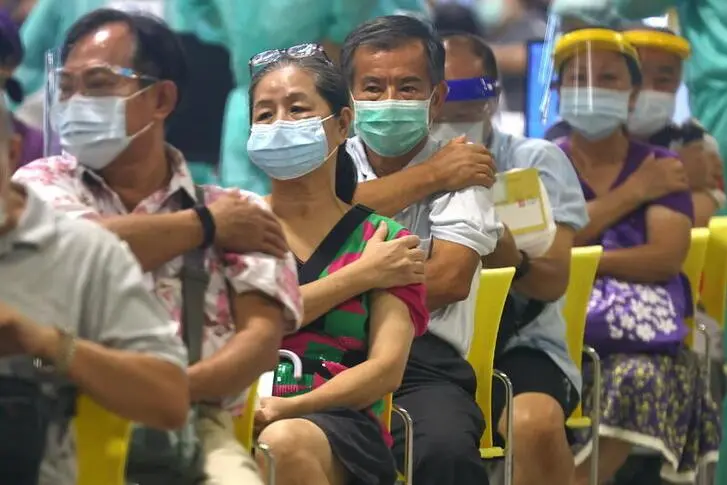PHOTO
TAIPEI - Taiwan has rejected an application for the emergency use of UBI Pharma's COVID-19 vaccine candidate, the government said on Monday, though the president said she would get a separate domestic shot in a show of support for the scheme.
Although Taiwan has ordered millions of Moderna and AstraZeneca shots, developing a local vaccine has been a major goal and it is due next week to start injecting its first domestic vaccine, made by Medigen Vaccine Biologics.
The health ministry, explaining the rejection of the request for emergency use authorisation (EUA), said the antibodies engendered by UBI's candidate did not match up with those prompted by the AstraZeneca vaccine.
However, the ministry said, UBI planned Phase III trials in India.
Health Minister Chen Shih-chung expressed regret that the EUA had not been granted. "We still have to follow certain standards," he told reporters.
UBI, whose stock closed down 30% on Monday following the rejection, did not respond to requests for comment.
In June, the company had said it would seek an EUA in Taiwan and that Phase II tests showed no major adverse effects for its candidate, which, it said, generated a good immune response.
The government has drawn criticism from opposition parties after President Tsai Ing-wen initially pledged to start administering domestically developed vaccines in July, before results of second clinical trials were released.
Later, Tsai said Taiwan would strictly scrutinise the process according to global scientific norms and put safety first.
Writing on her Facebook page, Tsai said she would be getting her first shot of Medigen's vaccine next Monday.
About 40% of Taiwan's 23.5 million people have received at least one dose of the two required by the vaccine regimen.
However, unlike some other parts of Asia, Taiwan faces no huge pressure to vaccinate the populace.
The pandemic is well under control, with only a handful of domestic infections reported daily following tough controls adopted after a spike in cases that began in mid-May.
(Reporting by Ben Blanchard and Yimou Lee; Editing by Clarence Fernandez and Andrew Cawthorne) ((ben.blanchard@thomsonreuters.com;))





















